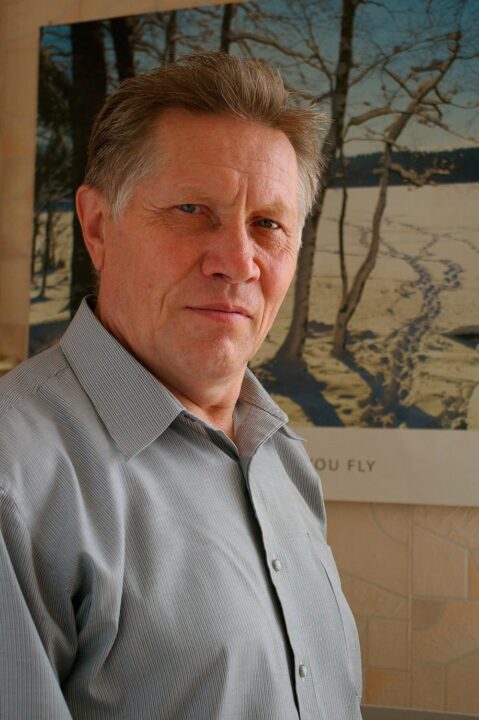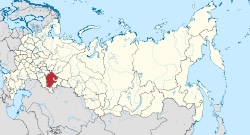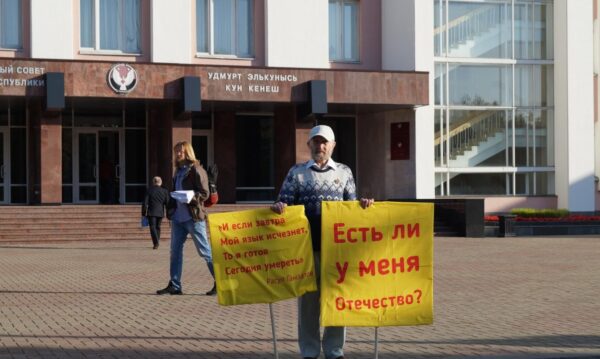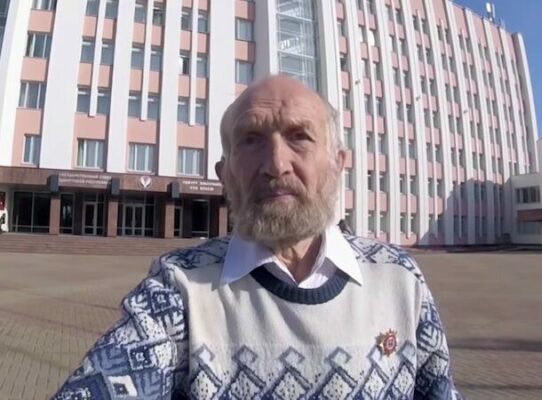In memoriam Valei Kelmakov
At the end of last year, sad news came out of Udmurtia of the passing of the eminent Udmurt linguist and Finnougrist Valei Kelmakov (14 January 1942–28 December 2023).

Kelmakov studied at one of the oldest (zemstvo) schools of the Oshtorma-Yumya region in the Kukmor district of present-day Tatarstan, where he says the school’s history outright obliged him to study linguistics. In the 19th century, several Finnish scholars stayed there, such as Torsten Aminoff (1838–1881), a researcher of Udmurt dialects and folklore, or Uno-Harva Holmberg (1882–1949). The school was attended also by Vassily Semyonov, who, while imprisoned in Esztergom in 1915–1917, helped the Hungarian ethnologist Bernát Munkács to collect folklore from Udmurt prisoners of war, as well as by Ivan Mikheyev (1876–1937), an Udmurt writer and dramatist and the founder of the methodology of teaching Udmurt. As the school was attended by children of different nationalities, Kelmakov learned Mari and Tatar, to which he later added Komi, Finnish and Hungarian from the Finno-Ugric languages.
Valei’s scientific supervisor and teacher was an Udmurt linguist Ivan Tarakanov (1928–2015), a student of Paul Ariste (1905–1990), who characterised his student with the words: ‘Valei differed from his fellow students in his correctness, conscientiousness, as well as his special interest in Udmurt linguistics and Finno-Ugristics.’ In 1970, he defended his candidate dissertation on ‘The Kukmor dialect of the Udmurt language’. Kelmakov’s specialisation became dialectology and historical grammar of the Udmurt language. He devoted a great deal of his time to the history of Udmurt linguistics. In 1993, Kelmakov defended his doctoral thesis on ‘The formation and development of the phonetics of Udmurt dialects’ (Формирование и развитие фонетики удмуртских диалектов). Since 1998, Valei Kelmakov was a member of the Udmurt Academy of Sciences.
From 1971 he worked at the Udmurt State University both as a professor and as head of the Department of General Linguistics and Finno-Ugric Languages. He wrote more than 270 scientific works. In essence, he founded the school of Permistics, which is concerned with the study of dialects of the Komi-Permyak and Udmurt languages. Kelmakov had close ties with Finland, teaching Udmurt at the University of Helsinki and the University of Turku between 1992–1994. In 1993 he published a textbook on Udmurt for Finns, Udmurtin kielioppia ja harjoituksia, and in 1994, together with Sirkka Saarinen, a textbook on Udmurt dialects, Udmurtin murteet. He is the author of the book Hungarian Linguists and Permic Philology and of several textbooks on Udmurt linguistics. Kelmakov was an honorary member of the Finno-Ugrian Society (Suomalais-Ugrilainen Seura), a member of the International Finnougrist Committee and a member of the editorial board of the journal Linguistica Uralica. In 2014 Kelmakov was awarded the Golden Cross of Merit of the Republic of Hungary.
Kelmakov’s hobbies included singing and bibliophilia, and it is said that the world’s rarest books in Finno-Ugristics were in his library. He also sang in the university’s folklore ensemble ‘Chipchirgan’.
- Кельмаков Валей Кельмакович (Institute of Udmurt Philology, Finno-Ugristics and Journalism of the Udmurt State University, in Russian)
- Доктор филологических наук Валей Кельмаков умер в Ижевске (29.12.2023 Komsomolskaya Pravda, in Russian)
- Valei Kelmakov ja jäähyväiset yhdelle aikakaudelle (08.01.2024 Uusi Suomi Puheenvuoro: Esa-Jussi Salminen, in Finnish)
- Udmurttilainen professori piti hieman Turusta! (23.01.2024 Uusi Suomi Puheenvuoro: Esa-Jussi Salminen, in Finnish)


